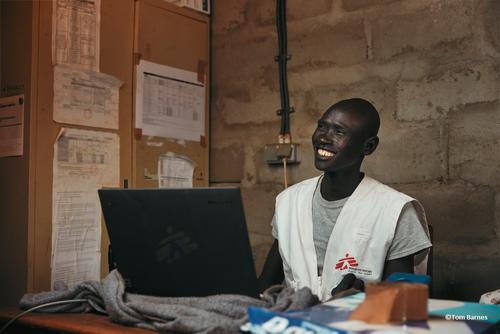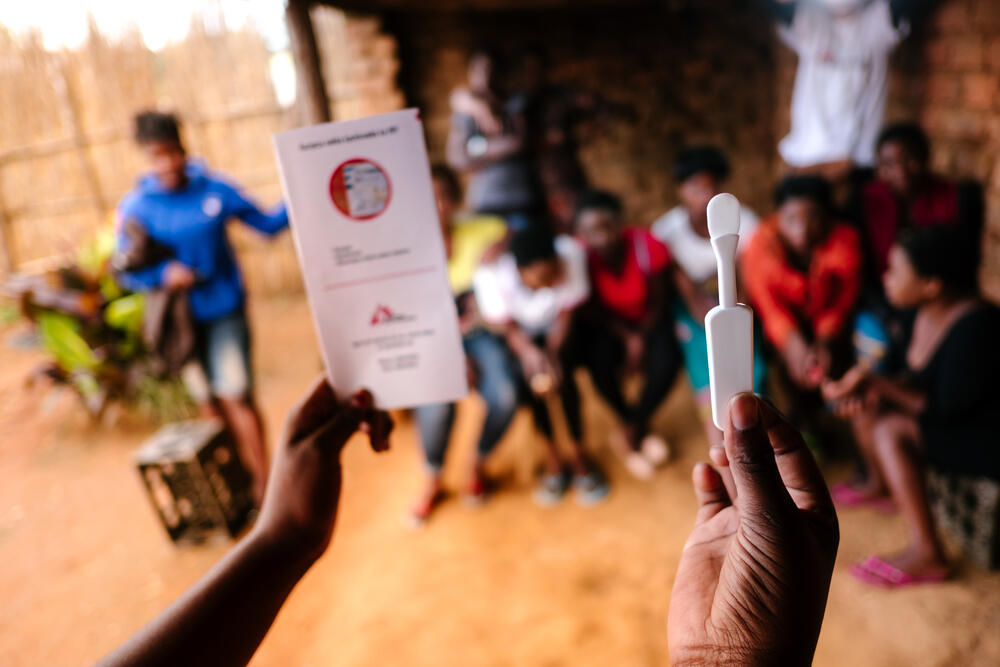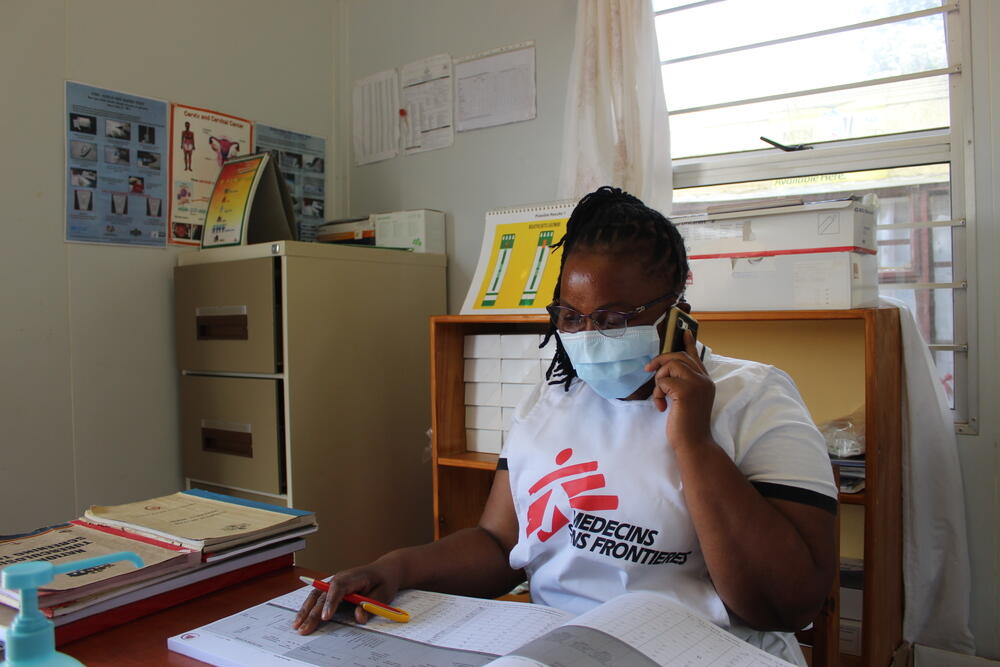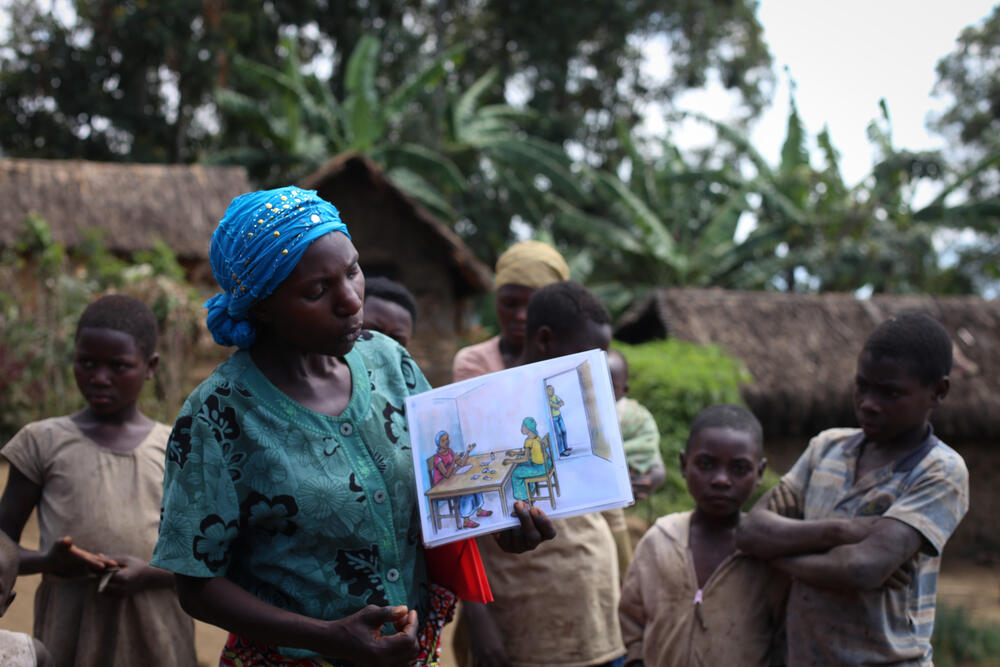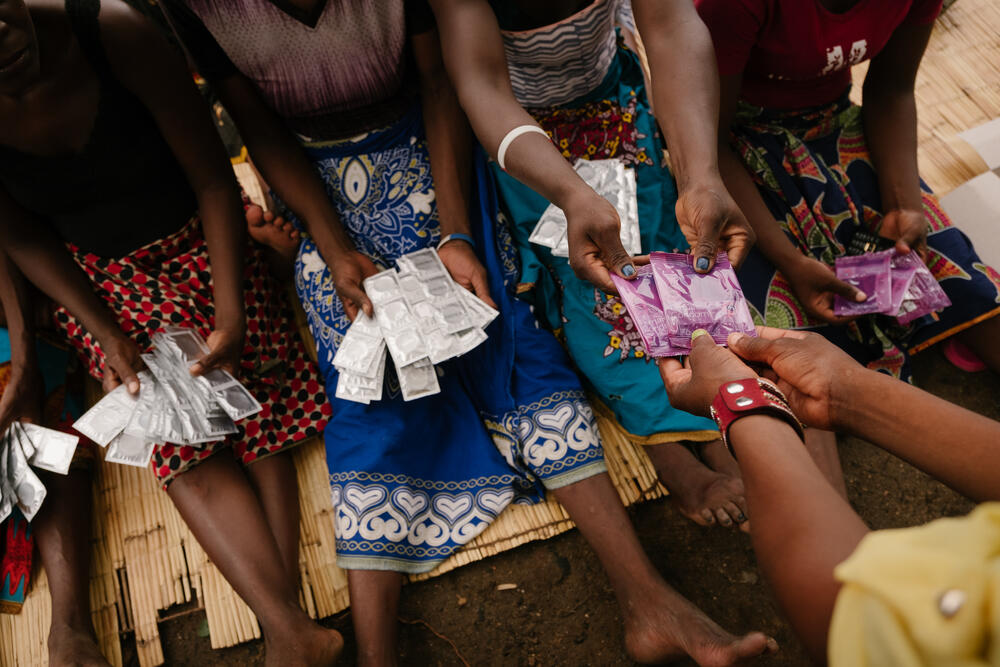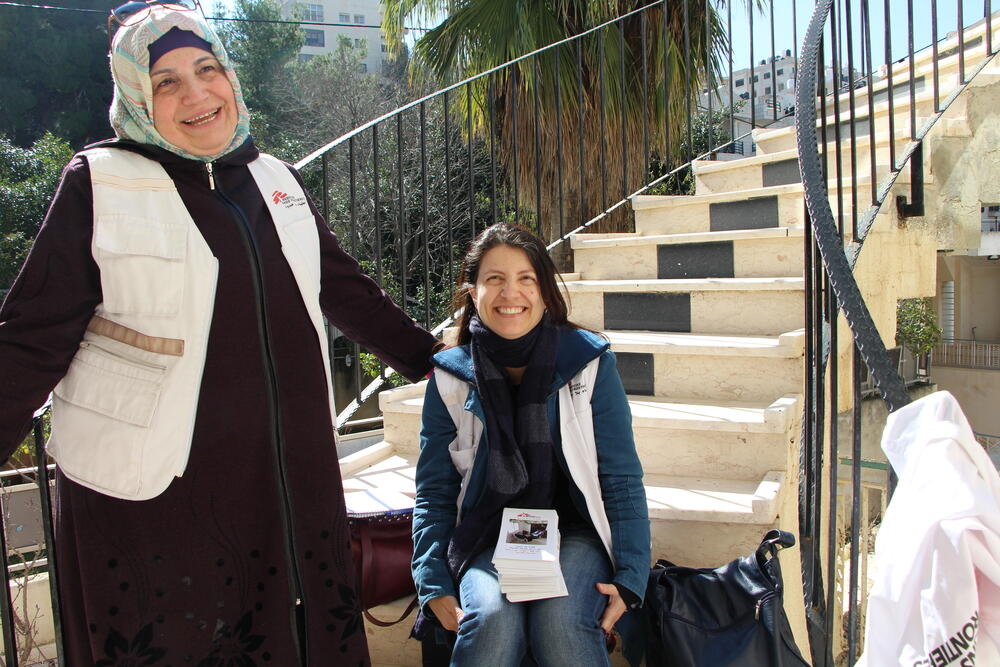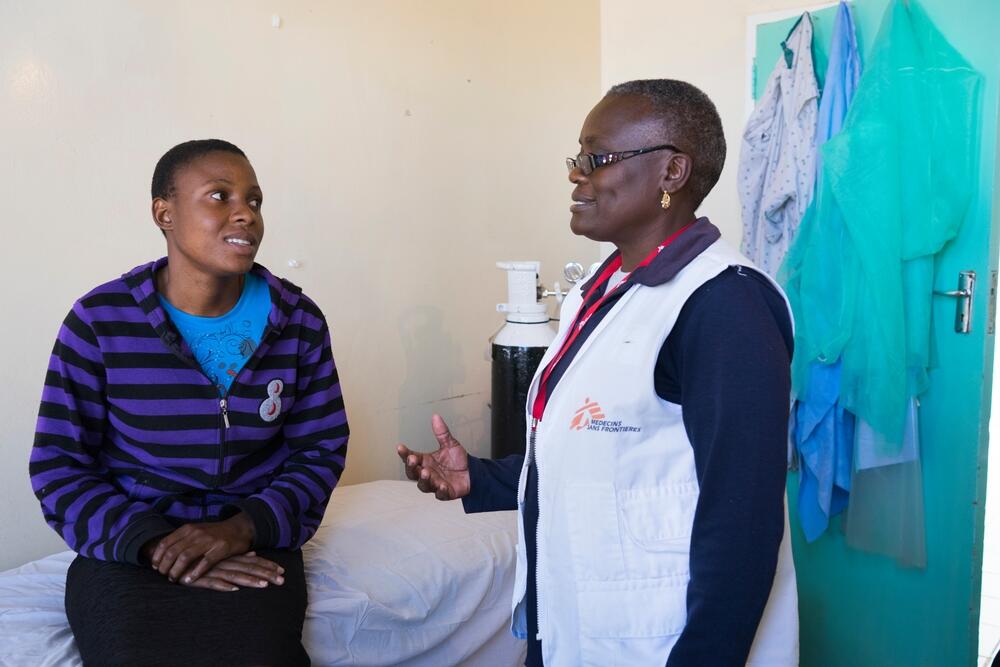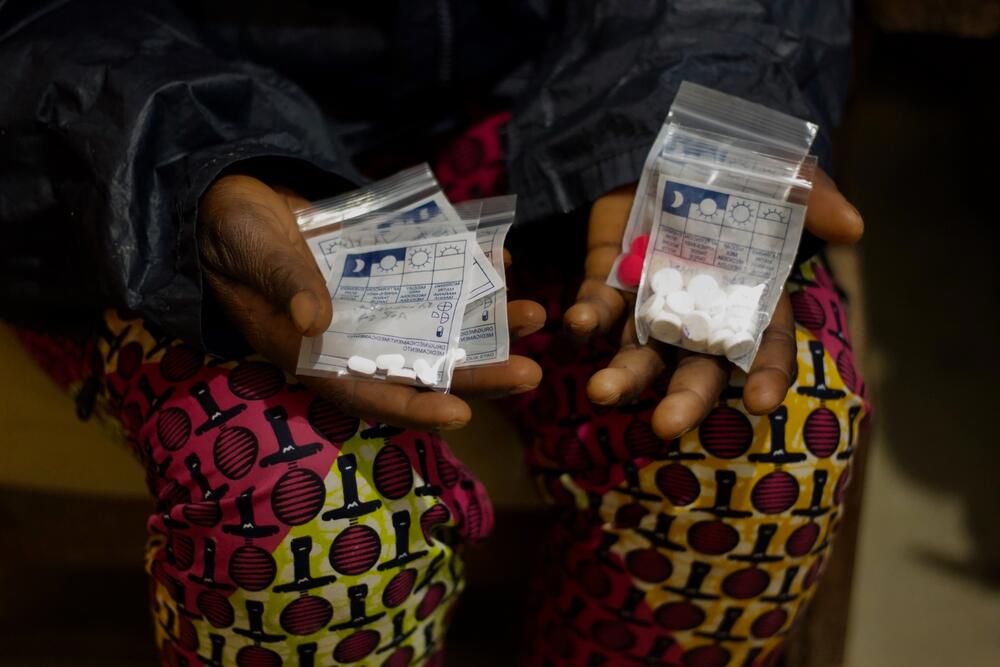Shifting the power
How supporting women and girls to practise self-care is changing humanitarian healthcare
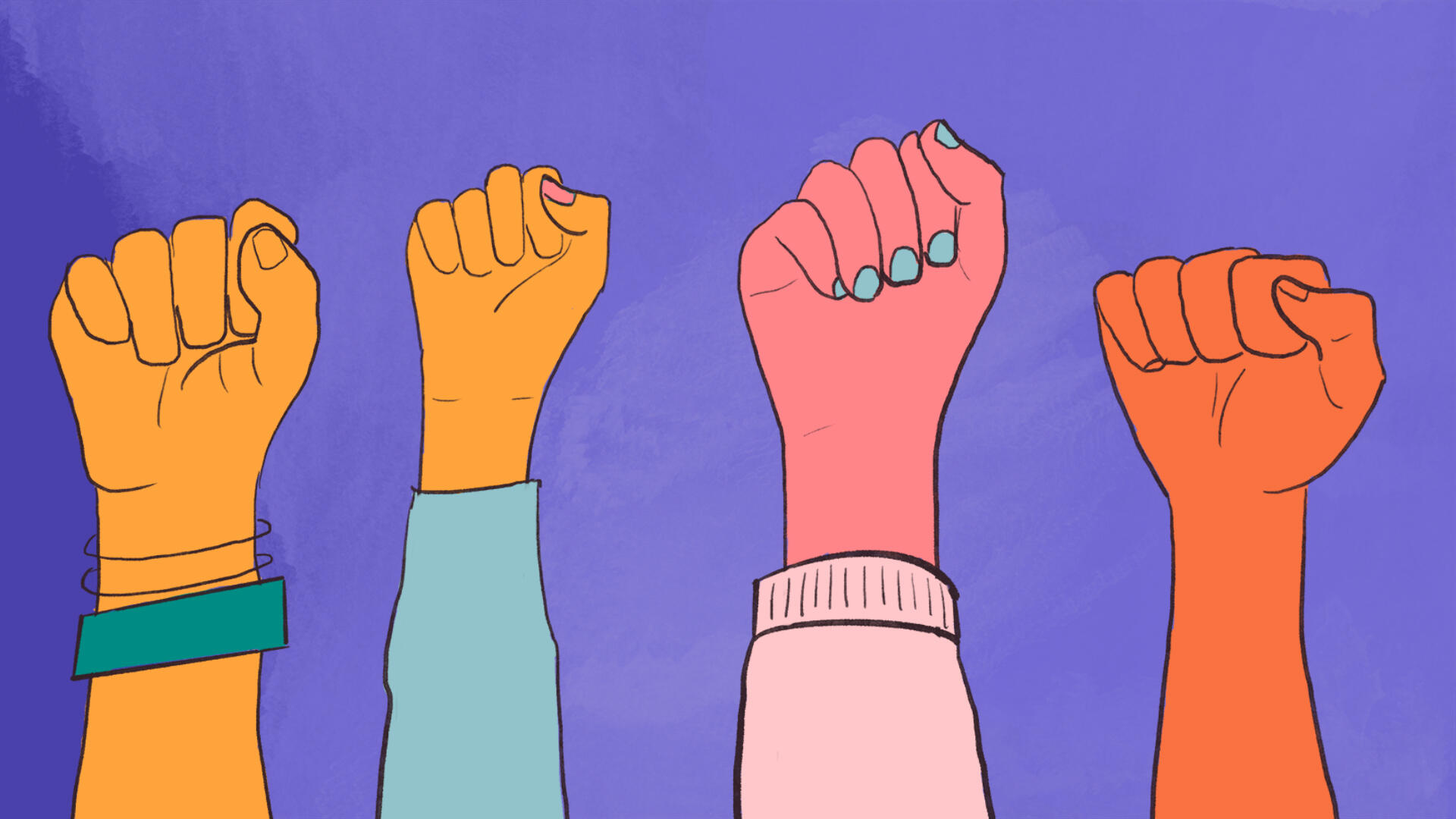
We all want the power to invest in our wellbeing – to be able to take care of our emotional, physical and mental health.
But, without reliable information and appropriate tools, reasonable options and adequate support, it’s not always possible.
However, self-care is changing the face of healthcare.
It focuses on equipping and entrusting people to take a central role in their own health. For women, this can involve an important shift to being able to make decisions about their own care, when they may not have had this autonomy before.
In our projects around the world, MSF teams have seen how self-care can improve both the quality and accessibility of healthcare.
For International Women’s Day 2021, we want to share what self-care can achieve to empower women and girls in crisis-hit communities – so that they enjoy healthier lives, just like women anywhere else in the world.
What is self-care?
Self-care is not about people having to do all their own healthcare without support. It is about entrusting people to manage parts of their own healthcare if they choose to do so.
Simplified tests and treatments, point-of-care devices and mobile technology have all made self-care more possible in recent years – with great potential benefit for women and girls.
Self-care includes:
- Self-management of medication, treatment and examination
- Self-testing ranging from sampling and screening to diagnosis and monitoring
- Self-awareness including self-help, self-education, self-regulation and self-determination
As a medical humanitarian organisation, MSF is adopting self-care and supporting people with the knowledge and skills they need to undertake it safely. This is while also maintaining access to more formal health services when they need them.
Why is self-care important for women?
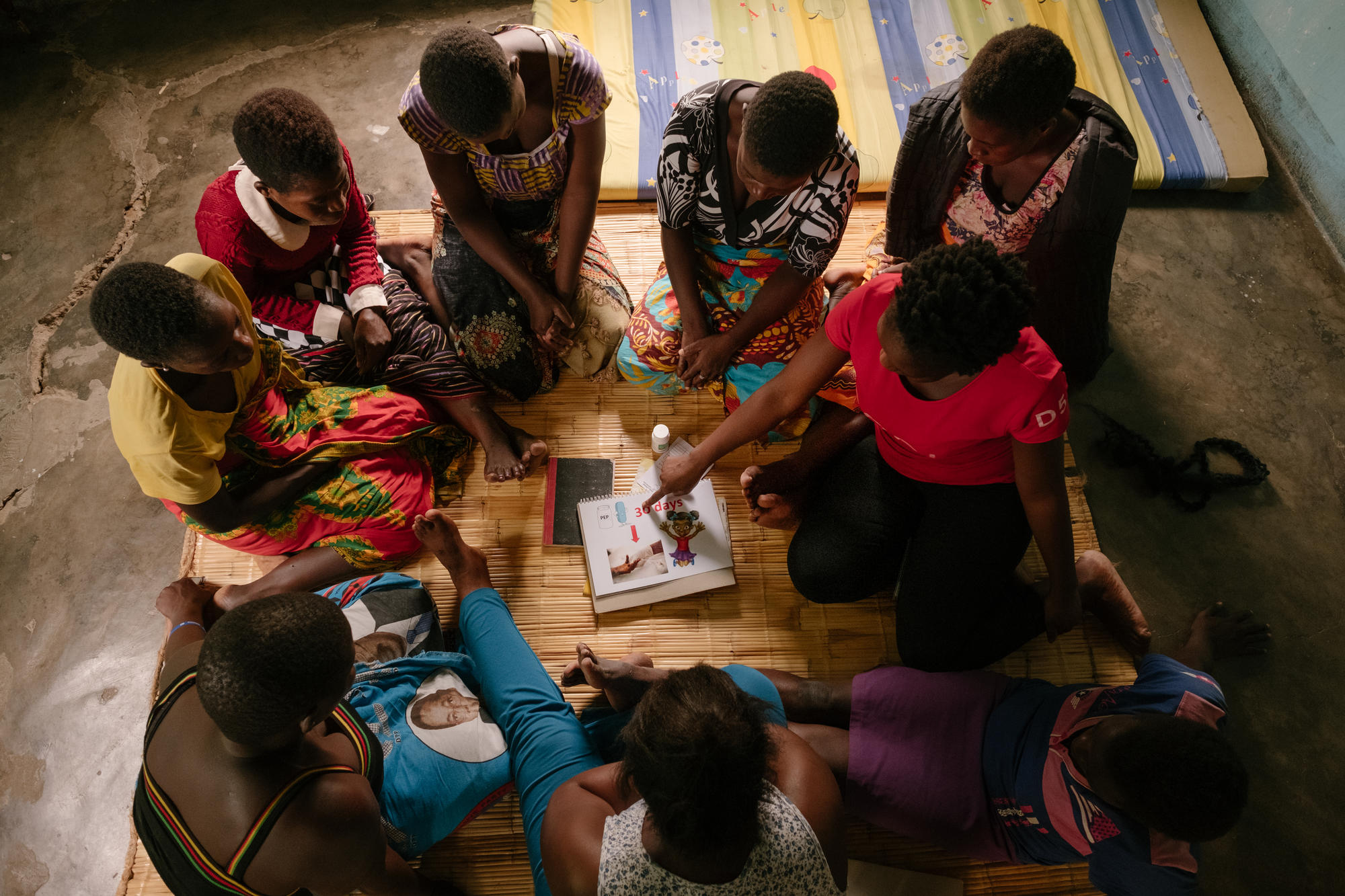
Globally, many women still do not have access to essential healthcare and struggle with managing sexual and reproductive health issues that may create stigma.
Close to one in four women of reproductive age still has no access to modern contraception to help her plan or limit her pregnancies. Just over half the people aged over 15 living with HIV around the world are women. Meanwhile, unsafe abortion remains a major cause of death in pregnant women who are unable to access a safe alternative.
The many social, economic and logistical barriers to accessing healthcare can be made worse by violence and discrimination. The situation is of course aggravated in the middle of a humanitarian crisis.
Now, COVID-19 has amplified healthcare inequalities in many regions, worsening the sexual and reproductive health of women and girls affected. And, while lockdowns have been instigated to keep us safe, they have also increased the danger for some women at home.
In such circumstances, the obstacles can be so great that women will neither come nor ask for care, even if they need it.
Self-care is an opportunity to address this, as recognised by the WHO with its first-ever self-care intervention guidelines in 2019, developed specifically for sexual and reproductive health.
How does self-care improve healthcare?
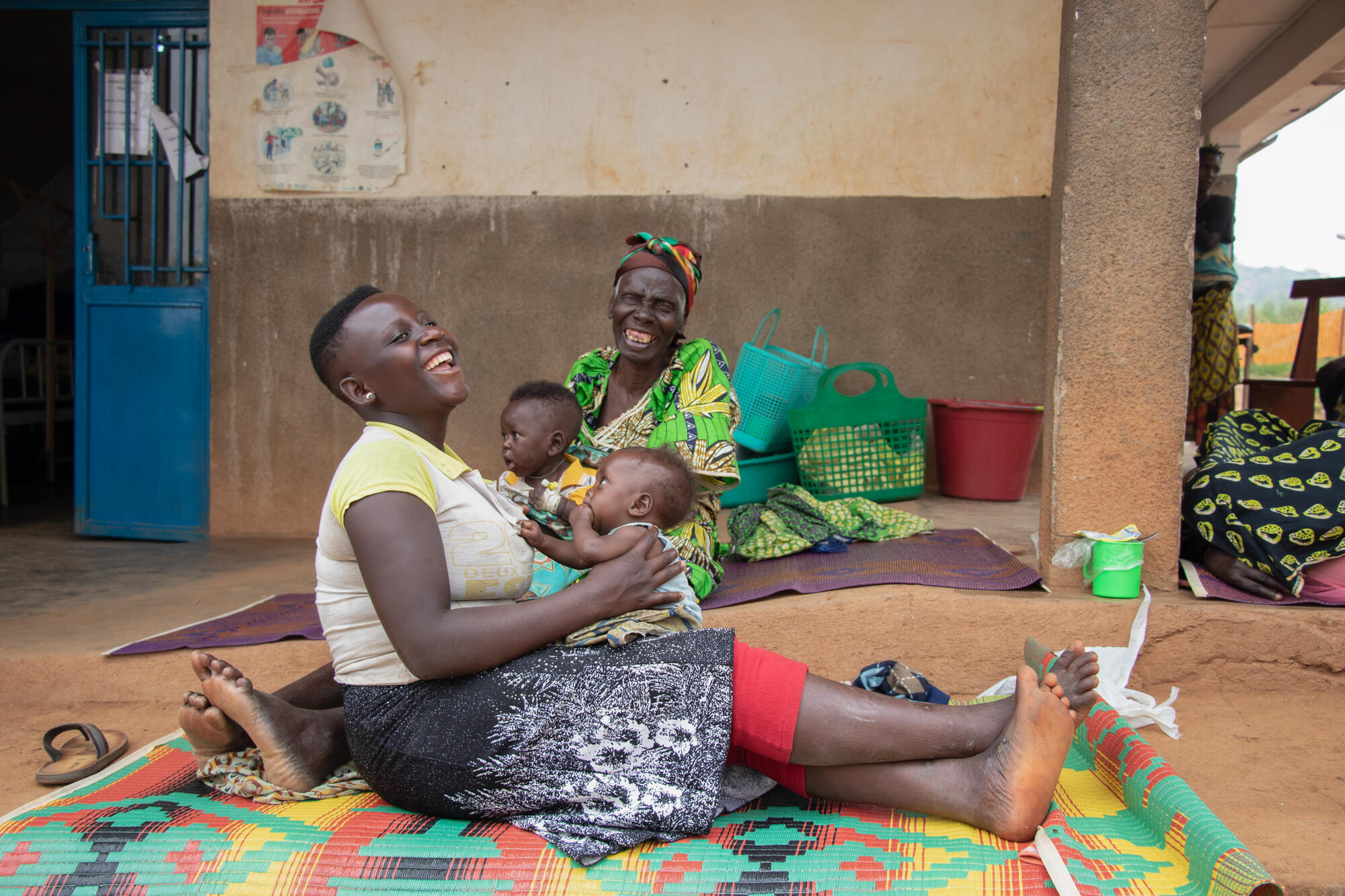
Self-care can expand the reach of healthcare services in remote locations, places suffering from instability or poor infrastructure.
It can extend healthcare outside the hospital or the clinic, beyond the doctor or the nurse. It can be a pragmatic response where resources are stretched, but can also help link people to healthcare services where there was no contact before.
Self-care programmes can deliver evidence-based and low-risk healthcare options directly and discreetly in the community or even in people’s own homes – for example with self-injectable contraception.
It offers convenience and confidentiality. And, importantly, can help improve early diagnosis and treatment, such as with HIV self-testing kits.
Through focusing on a woman’s individual needs, we can also improve the quality of care that she receives – ensuring that it is appropriate, respectful and built on trust.
For some women, self-care may be the only safe alternative, without which they may be forced to seek unsafe services or give up hope of care altogether. This is clear with the dangers of unsafe abortion, for example, where the use of self-managed medication to prevent a woman from seeking an unsafe one can ultimately be life-saving.
Self-care empowers women because it gives them access to information and services that allow them to decide on what works best for them.
Self-care also allows women to help and take care of others in their community, by sharing reliable information, delivering care as community health workers, and engaging with people who share the same lived experience and needs.
How is MSF supporting self-care?
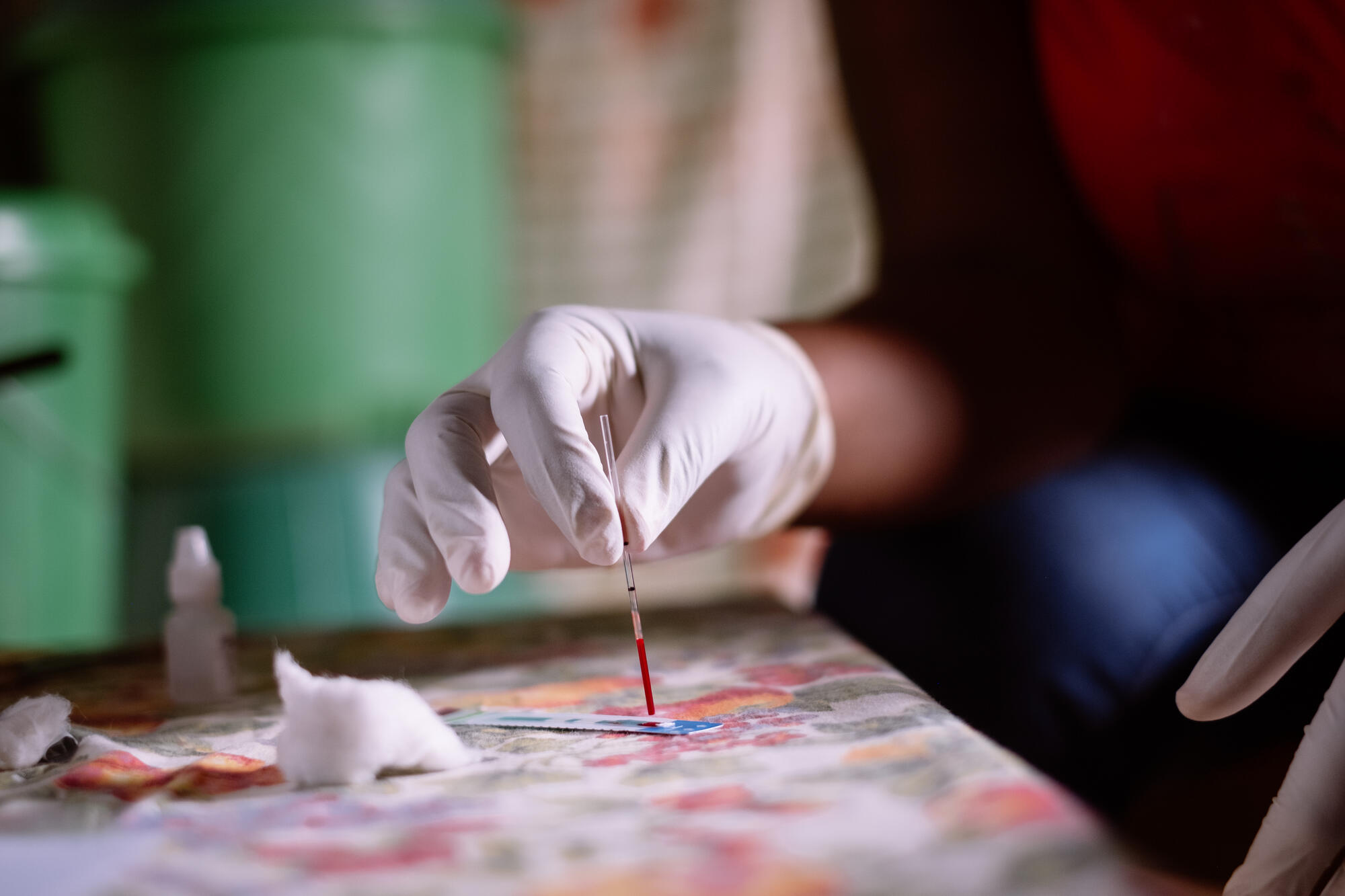
MSF is currently working towards improving self-care options by partnering with our patients.
As the evidence grows, we’re continuing to trial different tools and practices to understand what works best. We know that it's often communities that can lead the way, and no model is one-size-fits-all.
Whatever the self-care option, we will always ensure that women have access to a trained healthcare worker when they want or need one, and can be referred to further treatment without delay.
This is extremely important. Self-care should not substitute for formal healthcare.
It needs to be part of a spectrum of care from the professional healthcare system to community-based volunteers. It needs to add value, not stand in as second best for people otherwise excluded from care.
MSF has always innovated to overcome exclusion, and with women and girls as our partners, we have the exciting opportunity to innovate some more.
Where is MSF supporting self-care?
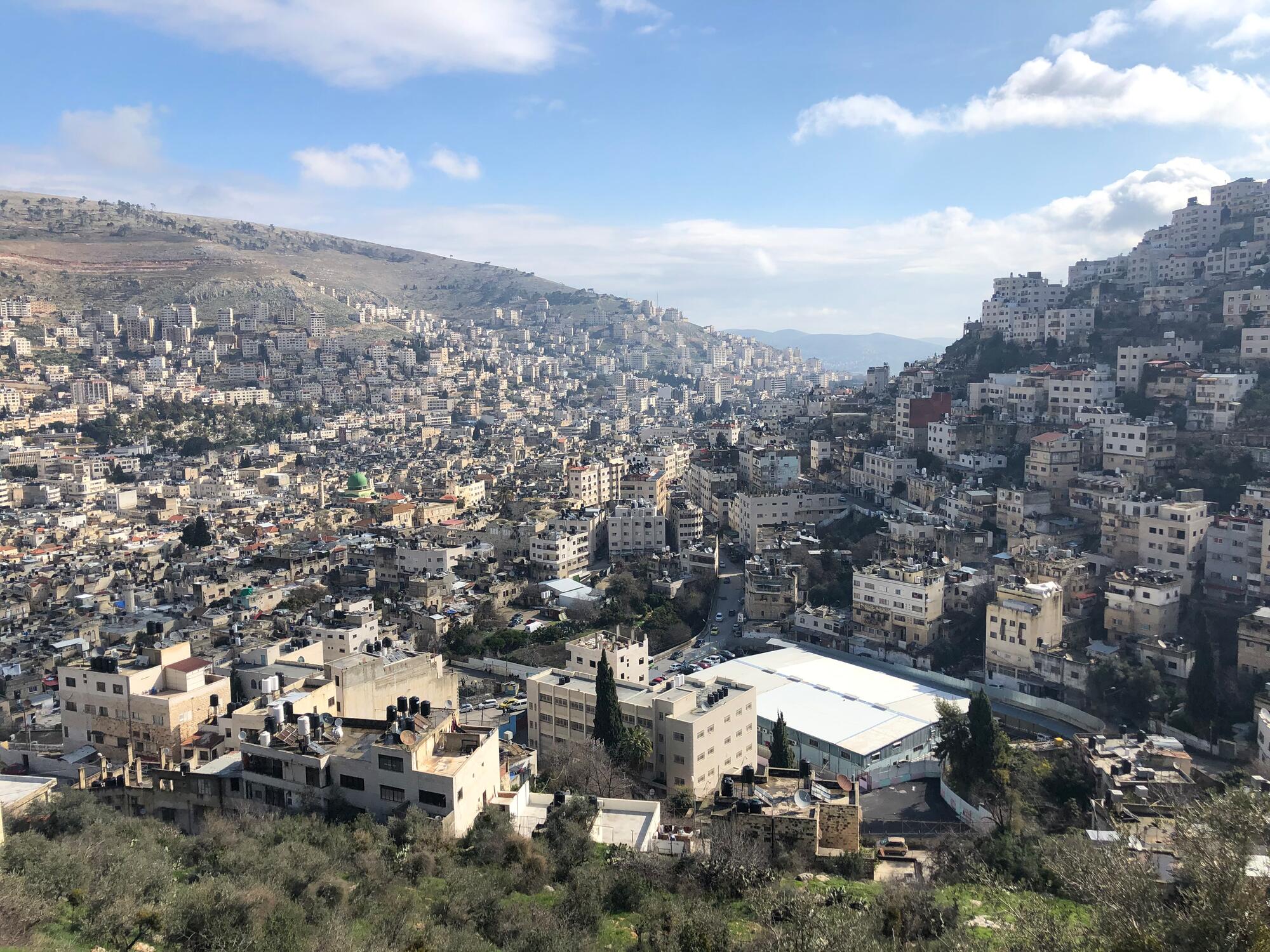
In Ituri Province in the Democratic Republic of Congo, we’ve introduced the self-injectable, long-acting contraceptive known as Sayana Press. Similar options have been available in our clinics before, but now women can manage the injections themselves.
With guidance from our staff, women can take away up to four easy-to-store devices at a time, using one every three months. This ensures they are covered for a year and don't need to make repeat trips to a clinic, travelling through this conflict-hit area.
About 3,000 doses of Sayana Press were provided to women in MSF projects in Angumu, Nizi and Drodro during 2020.
In Shiselweni district in Eswatini – a country with the highest rate of HIV in the world – we've been offering oral HIV self-testing since May 2017.
With a wait time of just 20 minutes for the results, many women now choose to take the test in the comfort of their own home once a month. Many have also chosen to take treatment known as pre-exposure prophylaxis (PrEP) if they are at particularly high risk, while also encouraging others to get tested.
And, if they face a positive test result, our counsellors can support them in person or via our hotline to manage life on antiretroviral treatment.
Our project for female sex workers in Malawi relied on community-led self-care to treat HIV, tuberculosis (TB) and sexual and reproductive health issues The community lived with especially high rates of HIV, sexually transmitted infections (STIs) and sexual and gender-based violence, and like sex workers around the world, faced discrimination and criminalisation.
In addition to "one-stop" clinics, we trained sex workers to become community health workers. They then helped to support other women with their shared experience to access treatment and manage unwanted pregnancies, unprotected sex and sexual violence.
By the end of 2020, we handed the project over to the Ministry of Health as well as community organisations that had been created by the health workers previously employed by MSF.
In Nablus, Palestine, our mental health project treats children and adults, including survivors of domestic violence.
As COVID-19 lockdowns restricted communities around the world, female patients in Nablus were trapped at home with no escape. So, we began using tele-counselling – something new for the project – to reach them with support. Sadly, the situation in Nablus was not unique. Evidence soon emerged that intimate partner violence was increasing worldwide during the pandemic.
As a testament to their resilience, the women in Nablus worked with our therapists to develop safety plans, establish self-care regimes and even chose codewords to warn that their partner could overhear the call. In fact, fewer women dropped out of counselling than when face-to-face only care was offered.
In Gutu district in Zimbabwe last year, our cervical cancer programme with the Ministry of Health began a trial to compare women self-swabbing for human papillomavirus infection (HPV) verses being swabbed by a nurse. The country has high rates of cervical cancer-related deaths, linked to infection with HPV.
The usual screening method carried out by staff at healthcare centres requires human resources, training and tools that can limit its rollout. However, the simpler swabbing method could potentially be carried out by women themselves – improving diagnosis for those unable to reach a clinic.
The trial found that not only was the simpler method effective, but that most women thought the procedure was much more comfortable and would recommend it to others.
In sexual and reproductive health, safe abortion is the most restricted of all care. But, thanks to medication-based abortion, termination of pregnancy has not only been simplified, it can be available in the privacy of a woman or girl’s own home.
Through our support services, women can come for an assessment and receive the drugs. They are then remotely counselled and emotionally supported through the procedure at home. They only need to visit us again if they have a rare complication or concern.
This is a game-changer for unmarried women, victims of rape, displaced women and anyone who wishes to manage a termination privately. The next steps are to make these services more accessible across our projects, provide free hotlines and home delivery of medication.
Let's empower women and girls
There is great potential to expand quality care for women and girls through improving self-care services, especially in the places where MSF works – places that are hit by acute humanitarian crises or are hard to reach.
Self-care should always be linked to more formal healthcare, but it can play a useful role where there is poor infrastructure or few health workers, as well as where marginalised people need care outside of the system.
From our experience, we believe that so much can be achieved by improving access to self-care and allowing women and girls to contribute to their own health and wellbeing.
Let’s empower women and girls by trusting that given the right information and tools, they can stay healthy, no matter where they live.
Get the latest news, stories and updates, straight to your inbox
